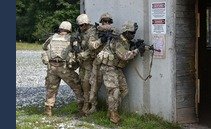The resilience of the Russian economy has stunned many economists, including those who believed the initial round of Western sanctions could overwhelm the Kremlin.

Vladimir Putin has repeated it several times over the last two years: Russia has managed to defeat Western sanctions. Disregarding the huge doses of propaganda injected into the country’s public opinion, the aforementioned statements hide a meaning that few analysts have been able to grasp.
Moscow is not swimming in gold and the military repercussions of the war in Ukraine, combined with the effects deriving from the forced commercial detachment from almost all European countries, have yet to reveal themselves in the medium to long term. Yet, at least for the moment, Putin can joke about the ominous predictions issued by Western analysts, according to which the Russian Federation would collapse within a few months.
On the contrary, as the Financial Times explained, the Russian president continues to point out that his country’s economy has not only resisted Western sanctions but is growing more and better than many other European economies. The reference is to the recent GDP ranking released by the World Bank in which, at purchasing power parity, the Russian economic system would be better off even than the German one. The International Monetary Fund, meanwhile, has revised its GDP growth forecast for Russia to 2.6% this year, an increase of 1.5 percentage points compared to what was forecast last October.
The resilience of the Russian economy
The resilience of the Russian economy has stunned many economists, including those who had believed that the initial round of Western sanctions could overwhelm the Kremlin. The Russian government has instead evaded US and EU attempts to limit its revenues from "energy" sales and increased Defense spending.
Russia is allocating a third of the country’s budget - 9.6 billion rubles in 2023 and 14.3 billion rubles in 2024 - to the war effort, a three-fold increase compared to 2021. This includes not only hardware production but also war-related social payments to those fighting in Ukraine and their families, as well as some spending on occupied territories. The significant increase in military spending marks “a striking break with Russia’s post-communist development to date,” the Stockholm International Peace Research Institute (Sipri) concluded.
Top economic officials in Moscow have warned Putin that an increase in government spending carries the risk of serious overheating of the economy soon. But for the moment the needs are different, and the mechanism keeps its robust growth. In any case, all this would have been impossible if the Russian Federation had not continued to generate colossal revenues from its energy resources (despite sanctions).
In 2023, the country’s energy revenue reached 8.8 billion rubles, a decline of about a quarter compared to the record result of 2022, but above the average of the last ten years. Despite this, authorities have been forced to resort to increasingly irregular methods of generating revenue from taxes and one-off taxes, including the "voluntary donations" that Western businesses have to pay at the moment they leave Russia.
The addiction to war
In short, Russia has adapted to the wide range of sanctions imposed by Western nations. Far from buckling under their weight, CNN highlighted, the Russian economy is 1% larger than on the eve of the offensive in Ukraine. The war, however, is distorting Moscow’s economy and sucking resources into military production at an unsustainable rate.
As explained by Sergei Chemezov, president of Rostec, a Russian state company involved in the defense sector, the company has almost quintupled the production of armored vehicles during the year, as well as other military equipment. “We have increased the production of ammunition for firearms and MLRS by 50 times,” Chemezov said in December. However, for some experts, building assets to be destroyed on the battlefield would not be the path to economic success.
leggi anche
Top 20 most powerful armies in the world 2024

Meanwhile, Russia’s usual technocrats have steered Russia through multiple financial crises by aggressively targeting inflation, propping up the country’s banking system, building foreign currency reserves, and attempting to curb additional spending. This approach proved crucial in mitigating the initial impact of sanctions early in the conflict, when Western governments froze $300 billion of Russia’s sovereign reserves, and when the Kremlin imposed currency controls to stop an exodus of capital and a run on the banks.
The Russian Finance Ministry estimated that the war-related fiscal stimulus in 2022-23 was equivalent to about 10% of GDP. Over the same period, war-related industrial production increased by 35% while civilian production remained flat, according to research published by the Bank of Finland’s Institute for Emerging Economies. Putin instead claimed that civilian production had increased by 27% since the start of the war.
In such a scenario some believe that rather than reducing Russian dependence on oil and gas export sales - which represent about a third of national budget income - Putin’s wartime push has created a new dependence: that linked to military production. Meanwhile, Moscow continues to sell oil and other raw materials to partners who are happy to buy the material at the sale price. For the record, India and China today account for 90% of Russian oil exports.
Original article published on Money.it Italy 2024-02-14 07:38:00. Original title: Perché l’economia della Russia continua ad essere resiliente





